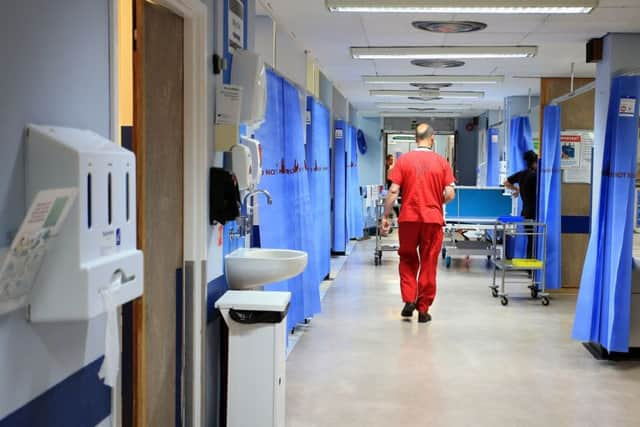We're all going to have to contribute more to NHS


She’s talking big money this time - £20billion - but there’s a catch. It won’t all come from the money we won’t have to pay the EU every year. For starters we’re all going to have to pay more income tax.
According to one report into how the money is to be raised, personal tax thresholds are to be ‘frozen’ after 2020. This means that as salaries increase more workers will be brought into tax brackets. This move will bring in just under £2billion a year. Not a lot in the grand scheme of things for the NHS which needs £394 million a week which will come from varying sources, but it is a start.
Advertisement
Hide AdAdvertisement
Hide AdIn the meantime, though, it would be as well for most of us not to plan any big spending sprees until we know how much we will have to hand over. Those who can manage their mortgage payments now might find them a burden in a few years’ time, for example.


That well-known phrase ‘pull in your horns’ might be the new mantra.
It stands to sense that the NHS is under grave financial pressures when you look at the drug and alcohol-fuelled lifestyles of large sections of the population who end up needing medical care.
Mental illness, too, is on the rise with victims getting younger, children in fact trying to cope with social media.
Advertisement
Hide AdAdvertisement
Hide AdSimon Stevens, chief executive of NHS England, this week described the NHS as having to ‘pick up the pieces’ of mental illness in children instigated by social media.
I was able to see at first-hand this week the pressure just one aspect of the NHS is under.
I found myself in the Royal’s eye casualty unit after my attempts to tame a bush in the garden. It won after slapping me in the eye which, of course, silly me, was not protected by safety glasses.
My GP couldn’t help as he hadn’t the equipment to deal with such an injury so he recommended an optician. Staff in the local Specsavers’ branch, bless them, went to a great deal of trouble to assess the injury but felt it still needed a hospital visit as the cornea had a small ‘slice’ in it and tiny fragments of the bush were still in my eye. Not exactly what I wanted to hear.
Advertisement
Hide AdAdvertisement
Hide AdThe Royal’s eye casualty unit was packed with patients. We were crowded into what must be one of those small three-bed wards they open during big emergencies events.
Two receptionists were housed in a space not much bigger than a cupboard and the staff were literally run off their feet. Once triaged each patient had to return to the ‘ward’ to await treatment. Clearly, for some, that was going to take hours. When it was my turn I was treated professionally and with courtesy.
Two things come to mind. The hospital staff in this department deserve a much better working space than they have and patients shouldn’t have to wait in a crowded room, without windows with seating better suited to an open air bus stop. No doubt this standard is all the hospital chiefs think the budget can take. Yet elsewhere in the hospital huge space is devoted to fabulous glass corridors and public spaces with artistic decoration. That sort of thing can take one’s mind off a medical predicament at the time and can be uplifting. But have budgets been spent wisely in the past?
It didn’t end there unfortunately. My injury requires two treatments to be used together which I was instructed to get in the hospital pharmacy. It had only one of the treatments in stock. So perhaps the pharmacy needs more money and staff too to keep up with demand.
Advertisement
Hide AdAdvertisement
Hide AdNone of us can object to paying more to fund the NHS, just so long as the money doesn’t get siphoned off for something else which is exactly what happened when the NHS was first set up in 1946 on the basis it would be paid for out of taxation. Successive governments kept dipping into the pot which is probably why the service is in such crisis today.